As a factory manager, you are under constant pressure. You need to increase output, keep costs down, and ensure your team is safe. You know that automating your coil packing line is the answer, so you start looking for a "local solution." But you quickly run into a problem. You find suppliers who are nearby, but they don't really understand the demands of a heavy manufacturing environment. They talk about a sale, not a solution. The whole process leaves you feeling frustrated and more cautious than when you started. I've seen this happen many times. You are not just looking for a machine; you are looking for a partner who can provide a real, working solution that solves your specific problems.
You can source local solutions for turnkey coil packing lines by looking for three types of partners: established regional distributors for major global brands, specialized local system integrators with proven experience in your industry, or by partnering directly with an expert manufacturer who provides comprehensive local installation, training, and after-sales support. The best choice depends on finding a partner who understands your unique challenges with efficiency, safety, and product damage, rather than just being geographically close.
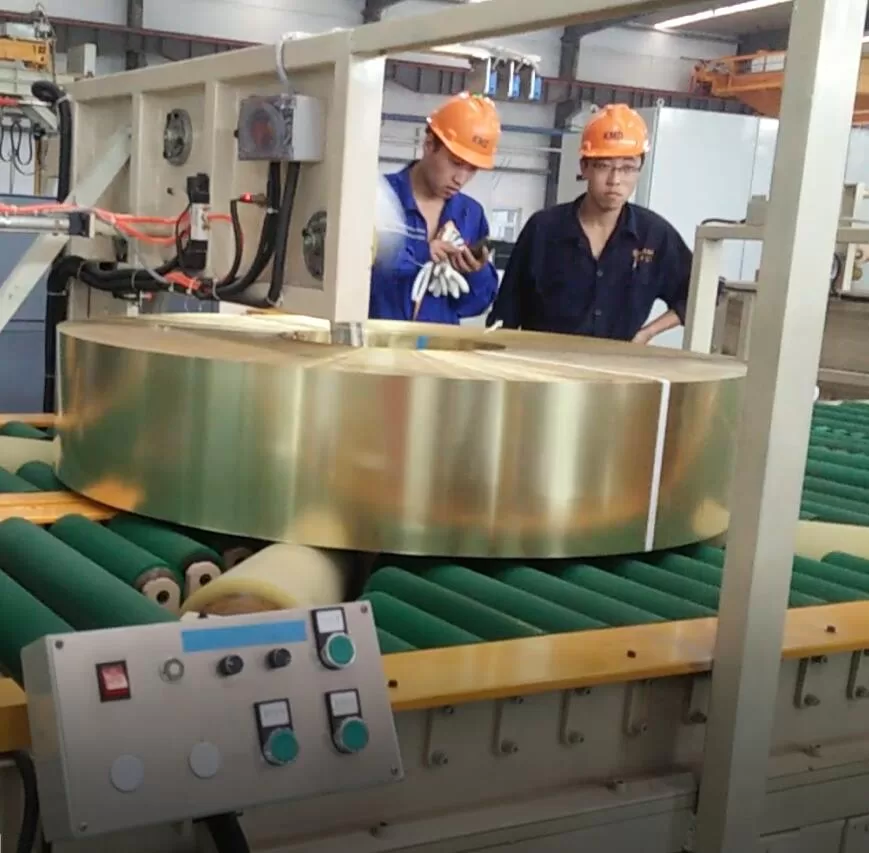
Finding the right partner is the most critical step. It’s the difference between a successful investment and a costly mistake. It’s not about how many miles away they are; it's about how close they are to understanding your business. In this article, I want to share my experience, not just as a machine builder, but as someone who has built and run a factory. I'll walk you through how to identify a real partner, what a true turnkey solution looks like, and why the best "local" solution might come from an expert who is dedicated to your success, no matter their location.
How Can I Find a Local Partner Instead of Just a Supplier?
You’ve had bad experiences with equipment suppliers before. They made big promises during the sales process, but once the machine was delivered, they were gone. The after-sales support was non-existent, and you were left to figure things out on your own. This makes you rightly skeptical. You know that for a project this critical, you don't need another supplier who just wants to make a quick sale. You need a long-term partner who is invested in your factory's success and understands the pressures you face as a manager.
To find a true local partner, you must look beyond the sales pitch and evaluate their entire process. A real partner asks deep questions about your production bottlenecks and safety concerns. They provide case studies of similar problems they've solved and have a clear, well-defined structure for local installation, training, and long-term support. Their focus is on your operational success, not just the initial transaction.
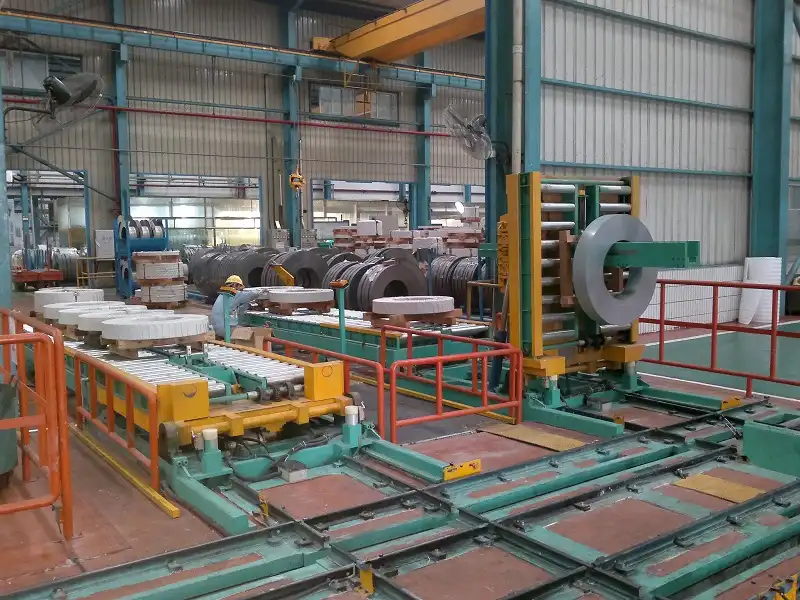
When I was starting my own factory, I learned this lesson the hard way. A supplier sold me a machine that looked good on paper, but it wasn't built for the non-stop, heavy-duty cycle of my production line. It broke down constantly. The supplier's "support" was just a manual they emailed me. That experience taught me that the questions a potential partner asks are more important than the promises they make. A true partner wants to understand your world. They will ask about your product flow, your current labor challenges, your specific type of product damage, and your long-term business goals. They aren't just selling you steel and motors; they are working with you to build a more profitable and safer operation. Let's break down how you can tell the difference.
The Supplier vs. Partner Checklist
It’s easy for anyone to call themselves a "partner." The real difference is in their actions and priorities. A supplier is transactional, while a partner is relational. I use this simple framework to evaluate who I am dealing with. Before you sign any contract, measure your potential vendor against these points. This simple check can save you from major headaches down the road.
| Characteristic | The Supplier (Transactional) | The Partner (Relational) |
|---|---|---|
| Focus | Making the one-time sale. | Building a long-term relationship. |
| Questions Asked | "What is your budget?" "Which model do you want?" | "What is your biggest production bottleneck?" "What are your safety concerns?" |
| Solution Offered | A standard, off-the-shelf machine. | A customized solution tailored to your specific workflow and products. |
| After-Sales Plan | Vague promises or a basic warranty document. | A detailed plan for installation, operator training, and ongoing support. |
| Success Metric | The signed purchase order. | Your measurable ROI and operational improvements. |
| Knowledge | Product-focused. They know their machines. | Industry-focused. They know your challenges. |
Red Flags That Signal a "Supplier" Mentality
In my years in this industry, I've seen certain warning signs over and over again. These are red flags that indicate you are talking to a transactional supplier, not a committed partner. Someone like Michael, with his experience, would recognize these immediately. High-pressure sales tactics are a major one; if they are pushing you to "buy now before the price goes up," they are focused on their quota, not your problem. Another red flag is vague answers about support. If you ask, "What happens if the machine breaks down on a weekend?" and they say, "Don't worry, we'll take care of it," without providing specifics, be very cautious. A true partner has a documented process for emergency support. Finally, a lack of curiosity about your operation is the biggest red flag of all. If they aren't asking to see videos of your current process or asking for data on your downtime, they don't have the information they need to provide a real solution. They are just trying to fit your problem to their existing product.
What Defines a "True" Turnkey Solution for My Factory?
You hear the term "turnkey" all the time. It sounds perfect. You have a problem, they deliver a solution, you turn the key, and it works. But your past experience tells a different story. Maybe you bought a "turnkey" system that was actually just a collection of machines from different companies. You were left to manage the integration, and when something went wrong, the wrapping machine company blamed the conveyor company, and the conveyor company blamed the strapping machine company. It was a nightmare that caused massive downtime and stress. This is not what a turnkey solution should be.
A true turnkey solution is a fully integrated and cohesive packaging line, managed from start to finish by a single, accountable partner. This partner handles the initial consultation, custom engineering and design, manufacturing, system integration, on-site installation, comprehensive operator training, and long-term after-sales support. When they hand it over to you, it is a complete, tested, and ready-to-run system that solves your specific business problem.
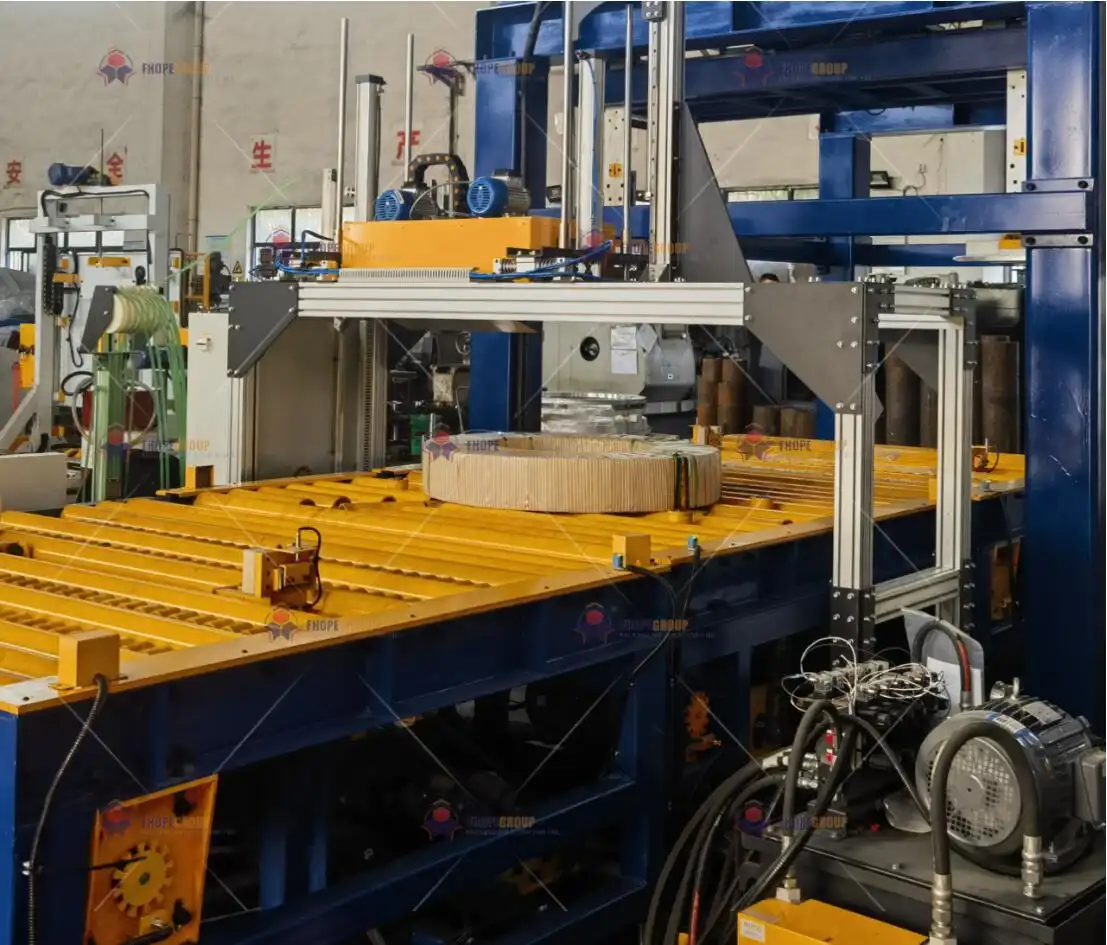
A real turnkey project is about taking full responsibility. It means you have one phone number to call for any issue. The partner is not just a manufacturer; they are a project manager. They understand that the individual machines are just components. The real value is in how they all work together seamlessly within your factory's unique layout and workflow. This approach de-risks the entire investment for you. It eliminates the blame game between different vendors and ensures that the final system achieves the efficiency and safety goals you set out to accomplish. Let’s explore what that looks like in practice.
The Real Components of a Turnkey Project
A turnkey solution is much more than just a piece of equipment. It is a comprehensive service that covers the entire lifecycle of the project. A professional partner will guide you through each of these stages with a clear and transparent process.
- Stage 1: Deep-Dive Consultation: It starts with them understanding you. They analyze your current process, production data, and physical space. They listen to your challenges with bottlenecks, worker safety, and product damage.
- Stage 2: Custom Engineering & Design: Based on the consultation, they design a holistic solution. This isn't just picking machines from a catalog. It's engineering a system where the conveyor speeds match the wrapper's cycle time, and safety features are integrated from the ground up. You should see detailed 3D models and layouts at this stage.
- Stage 3: In-House Manufacturing & Integration: The partner takes responsibility for building and testing the core components. Critically, they test the integration before it leaves their factory. They make sure the software for each part of the line communicates correctly.
- Stage 4: On-Site Installation & Commissioning: Their own trained engineers come to your site to install the equipment. They don't just drop it off. They manage the mechanical and electrical installation and ensure the line runs smoothly with your actual products.
- Stage 5: Comprehensive Training: A turnkey solution is only successful if your team can operate and maintain it confidently. The partner must provide hands-on training for your operators and maintenance staff.
- Stage 6: Long-Term Support: The project isn't over when the line is running. A true partner provides ongoing support, a clear warranty, and a plan for providing spare parts to minimize any future downtime.
Why "Piecemeal" Solutions Always Cost More
Factory managers like Michael are rightly focused on ROI. On the surface, buying individual machines from different suppliers might seem cheaper. You can price-shop each component. But this is a classic trap. The initial savings are almost always lost to hidden costs that appear during and after installation.
| Cost Factor | "Piecemeal" Approach | True Turnkey Partner |
|---|---|---|
| Integration | Your problem. You or a hired third party must make the machines talk to each other. High cost and risk. | Included. The partner guarantees the entire system works as one. |
| Project Management | Your time. You spend weeks coordinating deliveries, installers, and electricians. | The partner's responsibility. You have one point of contact. |
| Downtime | High risk. When a problem occurs, vendors blame each other, extending downtime. | Minimized. The partner is accountable and solves the problem quickly. |
| Training | Inconsistent. You get separate, often basic, training from each supplier. | Comprehensive. Your team is trained on the entire integrated system. |
| Troubleshooting | Complex and slow. You have to figure out which vendor to call. | Simple. You make one call, and the partner takes ownership. |
When you add up the costs of extra management time, lost production from integration delays and troubleshooting downtime, and the sheer stress of it all, the single-source turnkey partner almost always provides a better return on investment.
Why Do So Many "Local" Solutions Fail to Meet Expectations?
You decided to work with a local engineering firm. The logic was sound: they are close by, so service should be fast and communication should be easy. But soon after installation, problems started. The machine, designed by a generalist, couldn't withstand the high-volume, heavy-duty reality of your steel coil production. Bearings failed, the frame showed stress, and the control system was too simple for your needs. The local company meant well, but they simply did not have the deep, specialized experience required for your industry. Now you're stuck with an underperforming asset, and the promise of "local" feels hollow.
Many local solutions fail because they lack the specific, hard-won engineering expertise required for demanding industrial applications like steel or wire processing. A general fabricator can build a machine that works, but a specialist builds a machine that lasts. They often underestimate the forces, cycle times, and harsh conditions of these environments, leading to equipment that is unreliable, inefficient, and unsafe.
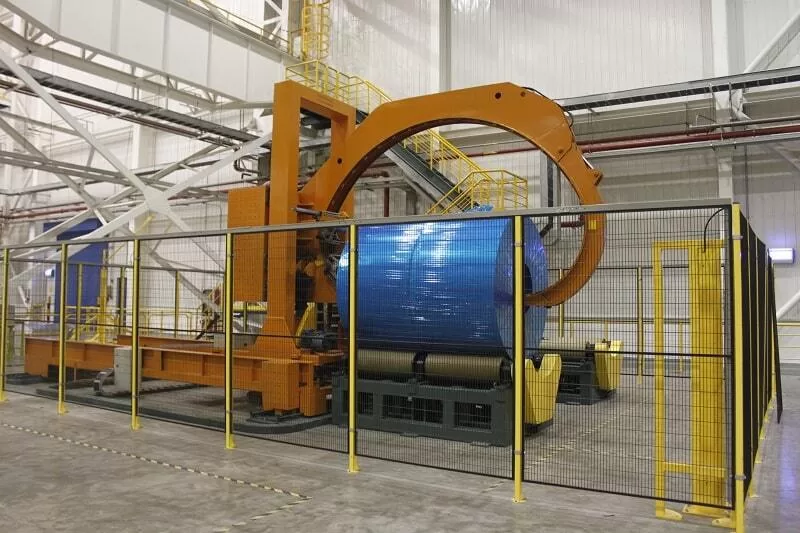
This is a painful but common story. Proximity does not equal expertise. In heavy industries, the physics of the problem are unique. Wrapping a 5-ton steel coil is fundamentally different from wrapping a pallet of boxes. The dynamic forces, the need for robust construction, the safety interlocks required—these are not things you learn in a textbook. They are learned over decades of focusing on one specific industry. A local supplier might be excellent at building conveyors or generic machinery, but they are unlikely to have encountered and solved the specific challenges you face every day, like preventing edge damage on slit coils or safely upending a massive roll. This gap in specialized knowledge is why so many well-intentioned local projects ultimately fail to deliver the ROI you need.
The Specialist vs. The Generalist
In manufacturing, specialization is everything. You would not ask a family doctor to perform heart surgery. The same principle applies to your critical production equipment. A local generalist fabricator has broad skills, which is valuable for many things. But a specialist in coil packing lives and breathes the unique problems of your industry.
Think about the engineering details. A generalist might use a standard gear motor that is rated for the load. A specialist knows that the repeated shock-loading from indexing a heavy coil requires a specific type of motor and gearbox with a higher service factor to ensure a 10-year lifespan. A generalist might build a strong frame. A specialist knows exactly where to reinforce that frame to handle the specific torsional forces created by wrapping a moving, unbalanced coil. They have seen what happens when you don't. This specialized knowledge is not an optional extra; it is the core requirement for building a machine that will be a reliable asset rather than a constant maintenance problem. For a manager like Michael, whose career depends on operational reliability, choosing a specialist is the only logical option.
The "Proximity Trap": Why Closer Isn't Always Better
We are naturally drawn to the idea that local is better. It feels safer. It seems like support will be faster. This is what I call the "Proximity Trap." The reality is that the quality and structure of the support are far more important than the physical distance. An expert global partner with a well-designed remote support system and a plan for local service can provide a much better experience than a nearby generalist who doesn't have the right answers.
Consider this scenario:
- Machine A (from a local generalist): The machine stops. You call the local company. They send a technician who arrives in two hours. He looks at the machine, isn't sure what the problem is, and starts making calls back to his office. Total downtime: 8 hours.
- Machine B (from a global specialist): The machine stops. Your trained operator calls the specialist's 24/7 support line. Using a secure remote connection, their engineer diagnoses the issue as a faulty sensor in 15 minutes. They guide your on-site maintenance person to replace the sensor (a standard part you have in stock because of their recommended spares list). Total downtime: 1 hour.
In this very realistic scenario, which solution was "better"? The one that was 20 miles away, or the one that got your line running again 7 hours faster? The best partner is the one who can solve your problem the fastest, and that is a function of expertise and process, not geography.
My Take: Why the Best "Local" Solution Might Not Be Local at All
I've been on both sides of this equation. I started my career as an engineer on the factory floor. I know the feeling in your stomach when a key production line goes down. I know the pressure from management to hit production targets. Later, when I started my own packing machine factory, I faced the challenge of sourcing reliable equipment myself. I made mistakes. I chose suppliers based on price or proximity and paid for it with downtime and frustration. These experiences are the foundation of SHJLPACK. My mission is not just to sell machines. It is to be the partner I wish I had when I was in your shoes.
The best "local" solution is defined by the quality of partnership and expertise, not by physical distance. A dedicated global manufacturer who has spent decades solving the exact problems you face can be a far better "local" partner than a nearby company that doesn't understand your industry. The right partner bridges the distance with deep expertise, meticulous planning, and a robust system for on-site installation, training, and support.
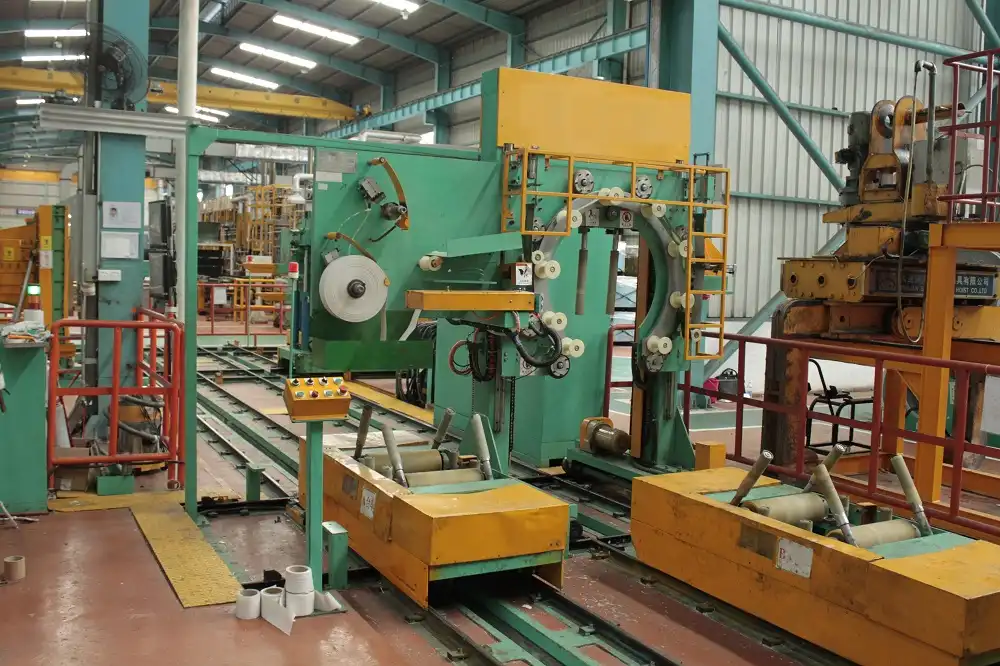
When a client like Michael Chen in Mexico comes to me, I understand his skepticism. He's been burned before. He's not just buying a coil wrapper; he's trying to solve critical business problems: production bottlenecks, high labor costs, worker safety risks, and product damage that hurts his company's reputation. He needs someone who sees the whole picture. My personal journey allows me to do that. I don't see a customer; I see a fellow factory manager facing challenges I know intimately. This perspective changes everything. It shifts the conversation from "what machine do you want to buy?" to "what problem are we going to solve together?"
How We Bridge the "Global-Local" Gap
Being a global specialist doesn't mean being disconnected. In fact, it means we have had to perfect the process of remote partnership and local execution. We've built our entire model around being the best "local" partner, regardless of our factory's address.
- Deep-Dive Remote Analysis: We don't need to be there in person for the first step. We use video calls, layout drawings, and production data to do a virtual walkthrough of your facility. We ask you to show us the problem areas. We want to see how your team currently handles the coils, where the safety risks are, and where the damage occurs. This data-driven approach allows us to understand your reality just as well as if we were standing there.
- Modular Design for Flawless Installation: We design our machines in a modular way. This means they are pre-assembled and fully tested as an integrated system in our factory. When they arrive at your plant, installation is faster, simpler, and has fewer risks. It's more like assembling a few large blocks than building from scratch.
- We Send Our People: For installation and commissioning, we don't outsource. We send our own experienced engineers—the people who helped design and build your system. They are accountable for making it work on your floor, with your products, and with your team. They stay until the line is running smoothly and your people are trained and confident.
- Empowering Your Local Team: Our goal is to make you self-sufficient. Our training is intensive and hands-on. We teach your maintenance team not just how to operate the machine, but how to troubleshoot it. We provide detailed documentation and a recommended spare parts list so you are prepared. For ongoing support, we combine instant remote diagnostics with a network of trusted local technicians we can call upon if a physical presence is needed.
A Case Study in Real Partnership
Let me tell you about a client, a factory manager very similar to Michael. His facility was struggling with a manual packing process for steel coils. It was slow, creating a major bottleneck that held up shipments. Worse, it was dangerous. They had several near-miss accidents with workers handling the heavy coils, and their insurance costs were climbing. They had also received complaints from customers about coils arriving with damaged edges from improper handling.
He was hesitant to work with an overseas company. I told him, "Let's forget about the machine for a minute. Let's solve your business problem." We spent two weeks analyzing his entire end-of-line process. We designed a fully automated line that took the coil from the slitter, upended it, strapped it, wrapped it, and placed it on a pallet, all with minimal human interaction. We sent our best engineer, who stayed for three weeks to oversee installation and train the crew until they were experts.
One year later, he called me. He told me that their throughput in that department had increased by 200%. They had not had a single safety incident in the packing area since the installation. Customer complaints about edge damage had dropped to zero. He said the project paid for itself in 14 months. That is what a true partnership looks like. We didn't just sell him a machine; we gave him a total solution that made his business stronger.
Conclusion
Finding the right solution means prioritizing expertise and partnership over proximity. An expert partner, even a global one, who understands your industry and is committed to your success provides a truly superior "local" solution.





